High cholesterol is no friend of ours. While your body needs a certain amount of cholesterol to form cells, having too much of it can lead to serious health conditions like stroke, diabetes, or heart disease.
And unfortunately, as you age, your risk for high cholesterol increases because your liver's ability to filter out bad cholesterol slowly decreases.
If you currently have high cholesterol, are above the age of 50, or know that it runs in the family, there are simple dietary changes you can make that may help you significantly.
We talked with a few dietitians to get their advice on eating habits you should avoid if you want to lower your cholesterol after 50, with some tips on helpful habits as well.
And for more heart-healthy tips, check out The Best Foods to Eat For Your Heart.
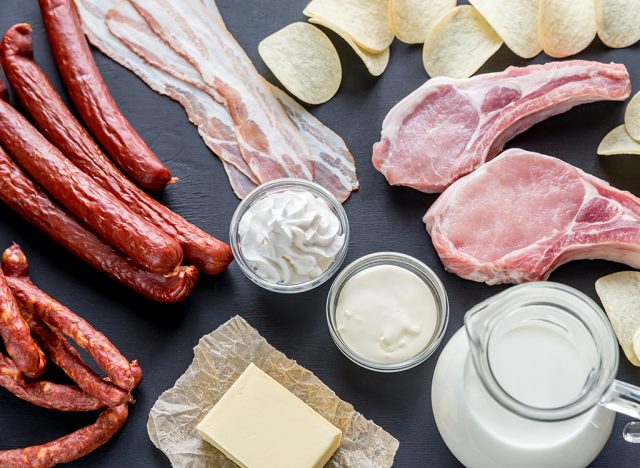
Limiting the amount of saturated fat you consume has been proven as an effective method in helping to lower and manage cholesterol.
"While many people think that dietary cholesterol increases your blood levels of cholesterol, that is actually false," says Amy Goodson, MS, RD, CSSD, LD, author of The Sports Nutrition Playbook, and a member of our medical expert board. "One of the biggest contributors to high cholesterol is the consistent intake of saturated fat. You find saturated fat in the skin on chicken, the marbling and visible fat in and on beef and pork, full-fat dairy foods, pastries and baked goods made with butter and cream, and fried foods, as well as in coconut, palm, and palm kernel oils."
"It's not to say you can't ever eat saturated fat, but the American Heart Association and Dietary Guidelines for Americans say that saturated fat should count for 10% or less of your total calories," she continues.
The American Heart Association also recommends replacing saturated fats with plant-based proteins like legumes, liquid vegetable oils, and lean poultry without the skin.
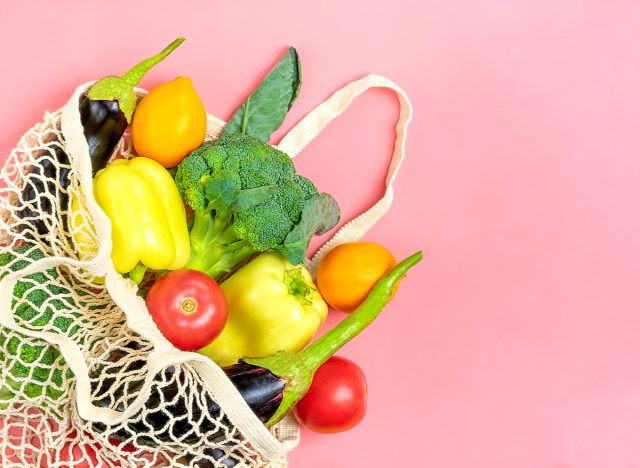
A common mistake that many Americans make is not eating enough fruits and vegetables each day, but our dietitians warn that this habit can hinder your goal of trying to lower your cholesterol levels.
"Fruits and veggies contain high amounts of antioxidants, which have shown to lower LDL cholesterol levels by reducing LDL oxidation and preventing the formation of plaque in your arteries," says Courtney D'Angelo, MS, RD, author at Go Wellness. "There are plenty of ways to add extra fruit into your daily diet and create a great habit out of it. For example, you can make a protein smoothie in the morning and add blueberries, strawberries, or your choice of fruit."
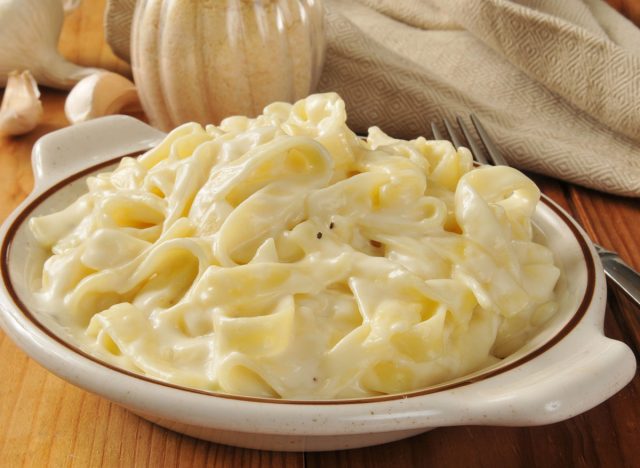
Dietitians also recommend if you're someone who loves creamy salad dressings or sauces, you may want to limit your consumption or look for types that are made with less saturated fat.
"Many people don't realize that their salad dressings, sour cream on tacos, and Alfredo sauce on pasta are often very high in saturated fat and calories," says Goodson. "Plus, what's really challenging is that sometimes you cannot see these foods as they are baked or cooked into desserts and sauces. However, these foods and ingredients are often high in saturated fat, which when eaten consistently, can contribute to an increase in total and bad cholesterol."
Here's The #1 Worst Oil for Cholesterol, Says Science.
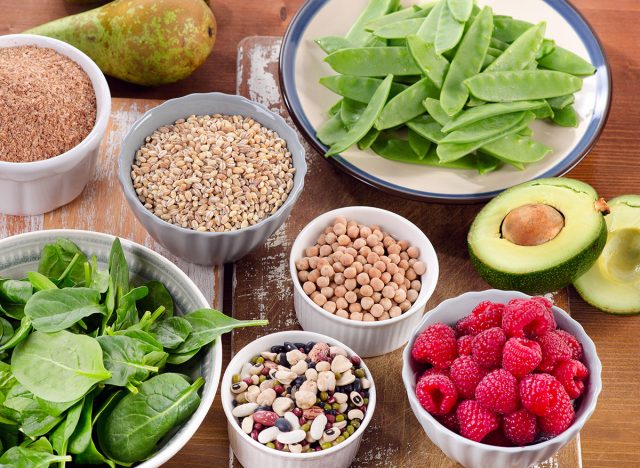
Eating a consistent amount of fiber every day is key for managing cholesterol because fiber is what helps your body not absorb as much cholesterol into the bloodstream.
"There are plenty of soluble fiber foods that you can incorporate into your diet today, such as oatmeal," says D'Angelo. "Oatmeal contains a high amount of soluble fiber, which can reduce the bad cholesterol (LDL cholesterol). If you start eating oatmeal every day for breakfast, you can get 3 to 5 grams of fiber per meal. You can then add fruit to your oatmeal and get even more fiber."
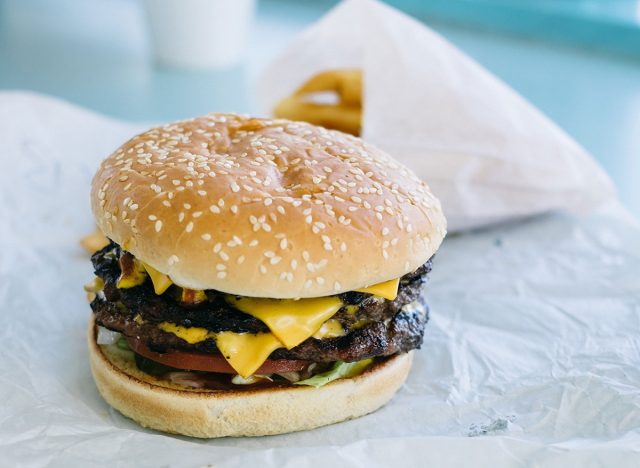
Fast food is one of the worst things you can eat when you're trying to lower your cholesterol. Not only is it loaded with fat, but the sodium content is through the roof.
"While there are some "better-for-you" options in the drive-thru like grilled chicken salads, sandwiches, and wraps, more fast food options than not have lots of saturated fat, which can contribute to increased bad (LDL) and total cholesterol levels when consumed regularly," says Goodson.
For more healthy eating tips, check out our list of 22 Meals to Melt Belly Fat in 2022.
Eating Habits to Avoid For Lower Cholesterol After 50, Say Dietitians — Eat This Not That - Eat This, Not That
Read More


No comments:
Post a Comment